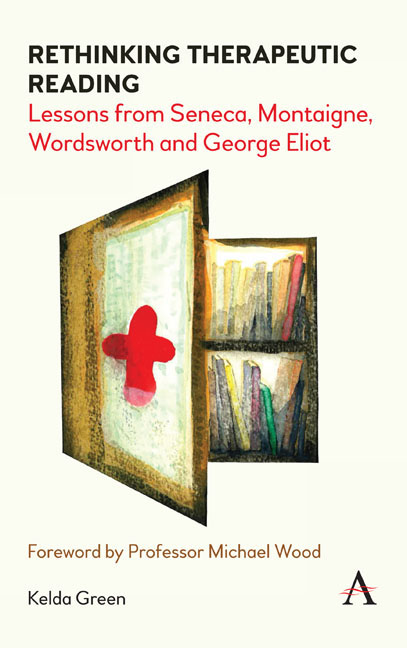7 - Experiment Three: Writing Back
Published online by Cambridge University Press: 16 July 2020
Summary
This final chapter sets out the findings of a third reading study, designed to further explore the kinds of thinking within individuals that can be triggered by serious reading. In this study, rather than poetry, the focus was on prose. A group of four participants were asked to read four selected chapters from George Eliot’s Silas Marner, and in response to their reading, write a series of imaginative letters between themselves, the characters within the novel and the author.
By serious reading I do not mean formal or academic study, instead the objective here was to trigger attentive, thoughtful and personal engagement with a difficult literary text. For as George Eliot herself wrote, as she was working on The Mill on the Floss, ‘My books are deeply serious things to me, and come out of all the painful discipline, all the most hardly-learnt lessons of my past life.’1 These ‘deeply serious things’, forged out of all the accumulated, complicated material of George Eliot's life demand to be taken seriously and they – in turn – and unlike so much of the material that we consume nowadays – are books that take us – as readers – seriously.
George Eliot places quite unique demands on her readers, but these demands are also what form the foundations of all that is potentially therapeutic within her novels. The aim of this study was, in part, to explore how modern readers might respond to those demands.
Further objectives were:
1. To examine whether readers were able to enter into and engage with the complex circuitry of the novel.
2. To explore whether George Eliot's prose could expand a reader's capacity to hold onto and shift between multiple different perspectives.
3. To allow some part of the interchange that takes place during reading between reader, character and author to be captured.
4. To examine whether readers can in some way replicate or participate in the process of projection and feedback that takes place between George Eliot and her characters.
5. To discover how George Eliot's mobility and breadth of thought impacts upon her readers.
Reading and Empathy
Theory of Mind is the ability to attribute mental states to other people and is a skill that is typically developed during early childhood: ‘It is mind reading, empathy, creative imagination of other's perspective; in short, it is simultaneously a highly sophisticated ability and a very basic necessity for human communication.’
- Type
- Chapter
- Information
- Rethinking Therapeutic ReadingLessons from Seneca, Montaigne, Wordsworth and George Eliot, pp. 163 - 180Publisher: Anthem PressPrint publication year: 2020



